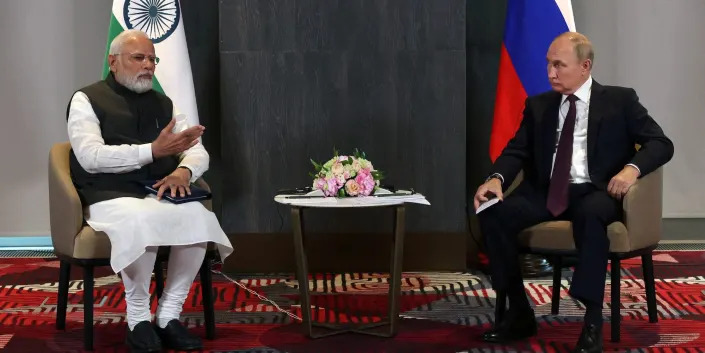If you care about your country and your rights, don't vote for any Republicans in 2022
Jill Lawrence, USA TODAY
Sun, September 18, 2022
Now that primary season is over there is a simple test for voters, especially Republicans and independents: If you care about the future of America, democracy and your own rights, don’t vote for Republicans. Any of them. Even the officeholders who have stood up to Donald Trump and the newcomers who pitch themselves as reality-based and results-oriented.
I feel terrible thinking this, much less writing it. I’ve covered many Republicans whom I admired. I spent months reporting on political negotiations and how deals get made in Congress. I believe policy debates and compromises are healthy, and the Democratic-led Congress has produced solid bipartisan results this year in gun safety, infrastructure, industrial policy and other areas.
Even so, the Republican Party is on a dark path and should not hold power anywhere until it comes back into the light. That’s especially true on Capitol Hill.
Congressional math is unforgiving. If there is just one more Republican than Democrat in the House or Senate, a power-obsessed party in thrall to election deniers and conspiracists will control committees, agendas, investigations and leadership positions.
We sued the FEC: Hold Trump accountable for raising money
Republican voters are key to the outcome. About 8% of them voted for Democrats in 2018, TargetSmart CEO Tom Bonier, a Democratic data and polling expert, told me in an email. If that rises to 15% this year, he added, “the GOP has no chance of taking back either the Senate or the House.”
That’s not an unrealistic goal given the percentage of Republicans who voted for abortion rights last month in Kansas (roughly 30%, Bonier said Wednesday at a New Democrat Network webinar) and the chunk of GOP voters alarmed by Trump and his "Make America Great Again" loyalists. A new poll found a quarter of Republicans agree that Trump's MAGA movement threatens democracy.
Opinion alerts: Get columns from your favorite columnists + expert analysis on top issues, delivered straight to your device through the USA TODAY app. Don't have the app? Download it for free from your app store.
President Joe Biden accurately summarized that threat in a recent speech: “MAGA Republicans do not respect the Constitution. They do not believe in the rule of law. They do not recognize the will of the people. They refuse to accept the results of a free election. And they’re working right now, as I speak, in state after state to give power to decide elections in America to partisans and cronies, empowering election deniers to undermine democracy itself.”
As national security expert Tom Nichols wrote afterward in The Atlantic, “We should be deeply troubled that Joe Biden had to give this speech at all.” And he had to. Because even now, after the Trump mob’s insurrection attempt on Jan. 6, 2021, two impeachments, years of election lies, escalating legal problems and the FBI recovery of top secret government documents from Mar-a-Lago, Trump is not a spent force.

Former President Donald Trump and ally Doug Mastriano, the GOP nominee for Pennsylvania governor, at a rally in Wilkes-Barre, Pa., on Sept. 3, 2022.
Hours after Trump supporters stormed the Capitol on their deadly quest to block Congress from finalizing Biden’s win, 147 Republican lawmakers went ahead and objected to certified election results from Arizona, Pennsylvania or both. Over 18 months later, the party is still with Trump. Polls show roughly 70% of Republicans don’t view Biden as the legitimate winner of the 2020 election, and most Republicans want Trump as their 2024 nominee.
In fact, Maggie Haberman reports in her upcoming book, “Confidence Man,” Trump never intended to leave the White House – though he lost to Biden by more than 7 million votes.
'I picked 15 weeks': Sen. Lindsey Graham mansplains his federal abortion ban
Believers of Trump’s Big Lie that he was the true winner have elevated so many delusional Republicans that 60% of voters will find election deniers on their 2022 ballots, according to FiveThirtyEight. Its analysis of GOP nominees for House, Senate, governor, secretary of state and attorney general found at least 200 of 552 say the 2020 election was illegitimate. If they win, they could influence and possibly even overturn elections in 40 states.
Some of these races are out of reach for Democrats. In U.S. House contests, FiveThirtyEight found that “118 election deniers and eight election doubters have at least a 95 percent chance of winning.”
At the same time, Real Clear Politics counts eight toss-up Senate races, 11 toss-ups for governor and 34 in the House. Concerned conservatives and moderates could make the difference in these contests – particularly if they vote Democratic no matter what kind of Republican is running.
This seems unfair to Republicans who have shown principled independence. By my count, 20 in the House made it to the fall ballot despite voting for an independent bipartisan commission to investigate the violent Capitol riot. Two of them, California's Rep. David Valadao and Washington state’s Rep. Dan Newhouse, also voted to impeach Trump for inciting the rioters.
Alarmed GOP voters are the fail-safe
Valadao’s tight race could be one of the few that determine House control. Does he deserve to be reelected? Maybe. But could America survive a GOP-controlled House unscathed? Also maybe, and that’s not good enough.
The same argument holds for candidates like Senate nominee Joe O’Dea in Colorado, who says he'd be an "independent-minded" senator, and House nominee Allan Fung in Rhode Island, who says he’d work with Democrats to solve problems. That’s commendable, but voting for them could produce a Republican House or Senate.
I wouldn’t even bet on fact-based Republican governors. Some could face veto-proof legislatures dominated by MAGA fantasists. And some could fold. Look at New Hampshire Gov. Chris Sununu and retired Army Brig. Gen. Don Bolduc, who a month ago declared that “Trump won the election. … I'm not switchin' horses baby. This is it." Sununu called Bolduc a “conspiracy theorist-type” and “not a serious candidate” for the GOP Senate nomination. But right before Tuesday's primary, Sununu said he'd endorse Bolduc if he won.
A MAGA-driven America is a grim prospect. Would future Republican candidates admit defeat if they lost, or would they make sure, through legislation and manipulation, that they'd win? Would they cement minority rule and further restrict fundamental rights like voting and abortion?
Biden has correctly distinguished between “mainstream Republicans” and Trump’s extreme “MAGA Republicans.” They are different, and mainstream GOP politicians holding the line deserve credit. Nevertheless, when it comes to who controls Congress and the levers of power in states across the country, all that counts right now is the “R” after their names.
Jill Lawrence is a columnist for USA TODAY and author of "The Art of the Political Deal: How Congress Beat the Odds and Broke Through Gridlock." Follow her on Twitter: @JillDLawrence
More from Jill Lawrence:
From Trump 2020 to 'Don't Say Gay,' GOP leaders waste millions of taxpayer dollars
Standing with Ukraine won't fix the GOP. Caring about democracy at home might help.
Interstate abortion travel bans? We're supposed to be a free country, not East Germany.
You can read diverse opinions from our Board of Contributors and other writers on the Opinion front page, on Twitter @usatodayopinion and in our daily Opinion newsletter. To respond to a column, submit a comment to letters@usatoday.com.













